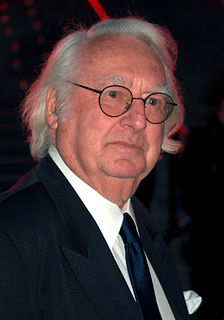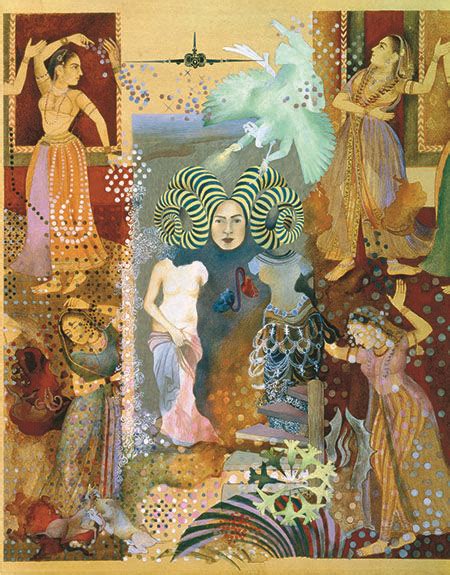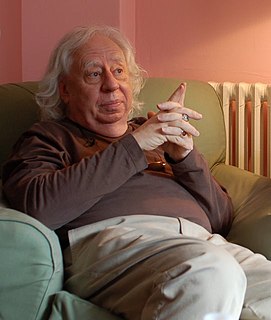A Quote by Matthew Slotover
Art is about the context in which it is made as much as the object itself; objects take on different meanings in different contexts. If the artist is unaware of the context, it's very unlikely the work will be very good.
Related Quotes
A text makes the word more specific. It really kind of defines it within the context in which it is being used. If it is just taken out of a context and presented as a sort of object, which is what - you know, which is a contemporary art idea, you know. It is like an old surrealist idea or an old cubist idea to take something out of context and put it in a completely different context. And it sort of gives it a different meaning and creates another world, another kind of world in which we enter.
When objects are presented within the context of art (and until recently objects always have been used) they are as eligible for aesthetic consideration as are any objects in the world, and an aesthetic consideration of an object existing in the realm of art means that the object's existence or functioning in an art context is irrelevant to the aesthetic judgment.
Fashion museums think the more you know about the significance of clothes culturally, the more interesting they are. We certainly don't neglect the aesthetic aspects of clothes. But, I feel that what sets us apart from social, economic, and even aesthetic, or art historical context is that we are not only talking about clothes as kind of art objects created by an artist designer, but also we're talking about the various meanings that clothes have in the world, and how that changes and how we kind of create meanings around clothes.
Sometimes I do feel exposed. I have this kind of theory about different channels or levels of relaying experience - when I tell someone, one on one, in a personal context, about something that's happened to me - that has a very different valence, a different charge, than when/if I've said it in a public forum.
I like the boundaryless potential you get when you make work for a context that is open to interpretation. Thinking about an art context is too claustrophobic, though. I always hope that at least half my audience is not directly related to the art world. I use art as a balancing act. It's a good way of avoiding everyday chores and social obligations.
When America installs a minimum income, it's going to be doing it in a very different historical context than Switzerland or Sweden or Germany, or any other country might do it. And we're doing it in a context where it has the potential, I think, for much better consequences than in those other countries.
I really love any and all manifestations of art, really respect any kind of artistic impulse, whether it's paintings and sculptures or really good filmmaking or music. I really see the relationships between these different mediums as very fluid. I think you see that nowadays, in this postmodern context, there's much more use of different mediums in contemporary art. For me, if you're a creative person, you can choose to make a painting, you can choose to make a film.
I think context, location matters a lot. Because location obviously in my situation, it's the space in which the work is going to be exhibited. And since some of the work I do is created onsite, it requires a different type of space, versus the smaller drawings or more subject-oriented work. So that the context becomes important.
God's Word is not presented in Scripture in the form of a theological system, but it admits of being stated in that form, and, indeed, requires to be so stated before we can properly grasp it - grasp it, that is, as a whole. Every text has its immediate context in the passage from which it comes, its broader context in the book to which it belongs, and its ultimate context in the Bible as a whole; and it needs to be rightly related to each of these contexts if its character, scope and significance is to be adequately understood.
The way in which the photograph records experience is also different from the way of language. Language makes sense only when it is presented as a sequence of propositions. Meaning is distorted when a word or sentence is, as we say, taken out of context; when a reader or listener is deprived of what was said before, and after. But there is no such thing as a photograph taken out of context, for a photograph does not require one. In fact, the point of photography is to isolate images from context, so as to make them visible in a different way.
Some people flinch when you talk about art in the context of the needs of society thinking you are introducing something far too common for a discussion of art. Why should art have a purpose and a use? Art shouldn't be concerned with purpose and reason and need, they say. These are improper. But from the very beginning, it seems to me, stories have indeed been meant to be enjoyed, to appeal to that part of us which enjoys good form and good shape and good sound.

































